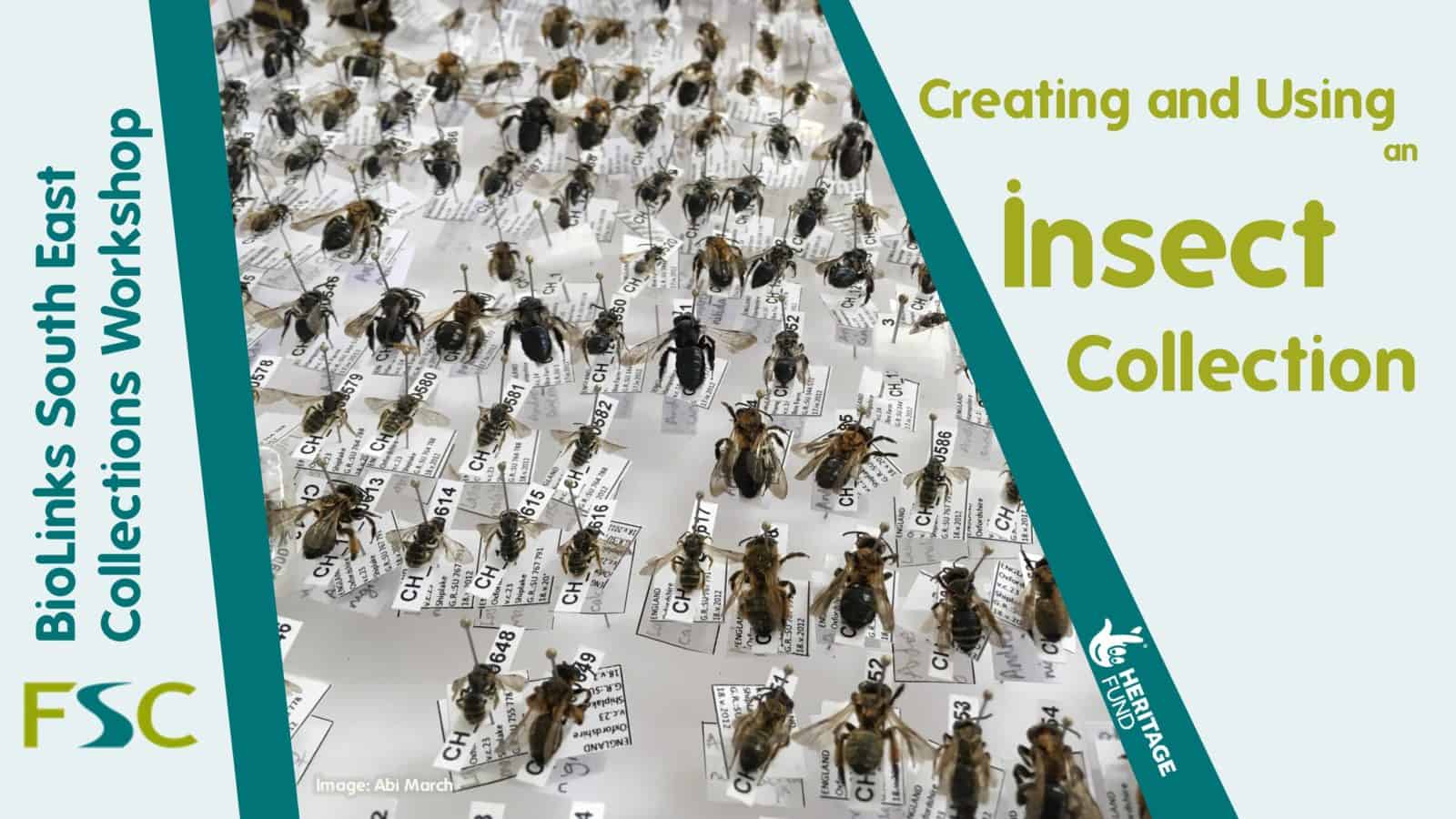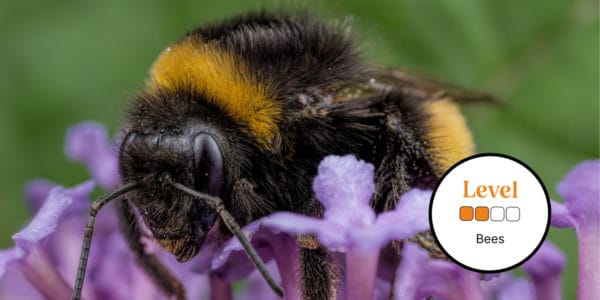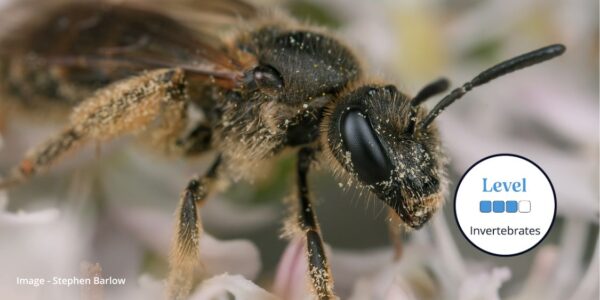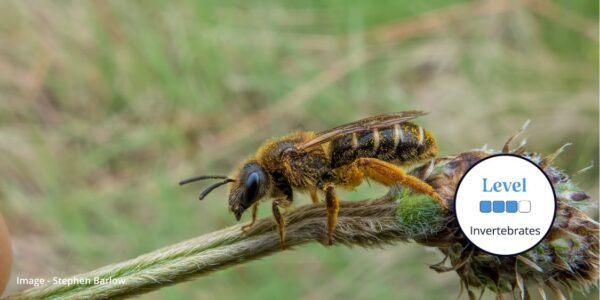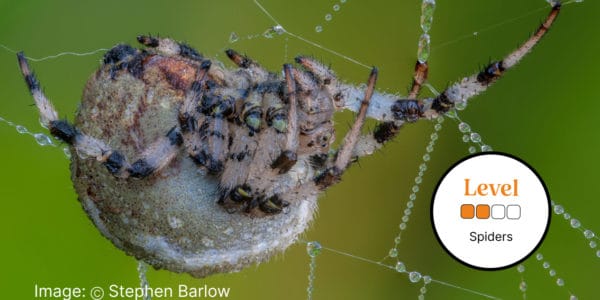Many museums house vast invertebrate collections which are used to help reliably identify both existing and new to science species and are an invaluable tool for taxonomic research.
However, insect collections are not restricted to museums, and many biological recorders both collect and store reference specimens to help compare morphological features, come to reliable identifications and aid in the mapping of species distributions. A personal reference collection can be a fantastic resource for insect recorders over many taxonomic groups. Despite needing to kill and preserve many species in order to identify them, well-curated insect collections still remain a misunderstood taboo for much of the general public and even some of the natural history community.
This collections workshop provides an introduction to techniques and practices on insect specimen preservation, labelling, storage and use over a range of insect groups.
-
- Certificate upon course completion.
- Please email [email protected] if you have any questions.
- Please note that this course will involve using specimens that have been killed and preserved.
This collections workshop will focus on developing entomology collection skills and is NOT an identification course.
Check out our FSC BioLinks blog ‘Why, sometimes, we need to collect invertebrates and our code of conduct for doing so’ by Holly Dillon for a discussion on why invertebrate collections are a necessity.
What will be covered during this course?
- Why insect collections are important
- An overview of the equipment needed to create insect collections
- Practical experience pinning, carding and staging insect specimens
- No microscope experience is necessary – our tutors will set up and show you how to use a microscope.
See the ‘Example Timetable’, ‘What’s Included’ and ‘Before You Attend’ sections below for more information about this course.
Course Fees
Subsidised Price: £10 Subsidised by the FSC BioLinks project for non-professionals eg. volunteers, biological recorders, wildlife gardeners, amateur naturalists and students.Available to UK residents only. Select ‘Attendee Subsidised: In Person’
Regular Price: £75 For professionals and residents outside of England. Select ‘Attendee: In Person’. Sold Out
Tutor: Dan Asaw
Dan is a keen educator and Coleopterist. He has experience working within education as a teaching assistant and loves the opportunity to share his experiences and knowledge with a range of audiences. Dan's interest in invertebrates started at a young age and as a teenager he was already rearing praying mantids in his bedroom. From there, he began rearing exotic invertebrate disease vectors for scientific research at the London School of Hygiene and Tropical Medicine.
In his spare time, he has volunteered integrating UK beetles into the Natural History Museum Collection. He is often found digging through wood piles and utilising a variety of trapping methods to find and identify beetles. He is an active member of the Herts Invertebrate project and Hertfordshire Natural History Society, and has helped generate some significant county records in this capacity.
Covid Measures
In order to keep our customers and staff safe we ask that anyone attending our centres:
- wears a face covering when in shared indoor space (unless exempt).
- maintains social distancing.
- cleans their hands regularly.
- takes a Covid-19 test before they arrive.
Example Timetable
- Please arrive in time for the course to start promptly at 10:00 am.
- Refreshments will be available from 9.45 am.
- The course will end at 4:00 pm.
What's Included
- 6 hours of tuition
- Certificate of attendance
- Access to a microscope, equipment and specimens
Bursaries and Subsidies
FSC BioLinks
FSC BioLinks is an exciting project for FSC in the South East and West Midlands, bringing together existing volunteers with skills in biological recording and identification, and new volunteers.
This project provides subsidised training courses, learning opportunities and digital tools focussed on invertebrate identification for anyone involved or interested in biological recording, to build and strengthen the community.
Invertebrates provide us with many useful ecosystem services, like pollination and decomposition, which we cannot survive without but their numbers are declining. Few people know how to identify or record invertebrates meaning there is a lack of data
We are delighted to have been awarded a grant of £1.23 million from the National Lottery Heritage Fund for this project.
Before You Attend
Getting to FSC London: Bushy Park
Information on getting to the site can be found here.
When you arrive at The Stockyard gate you may need to call the centre to open the gate. You can reach the staff on site on 020 8941 4398.
What to bring
- Notebook and pencil
- Lunch
- Any specimens you want to use throughout the day
Please note that this course will involve using specimens that have been killed and preserved.
There will be a member of staff with first aid training and access to a first aid kit on site. If you have special medical requirements please let us know as soon as possible so we can plan the course.
Sorry this course has ended

